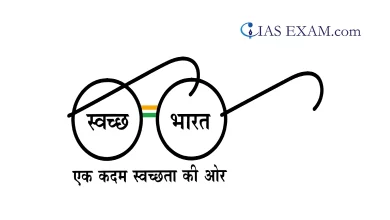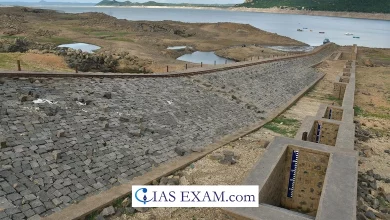Terror Financing – Associated Issues and Challenges

[GS Paper 3 – Internal Security, Defence]
Context – The spectre of terrorist violence looms large over the world. With the technological advancement terrorists, criminals, weapons and funds are also able to move across national boundaries easily. India is increasingly playing a leading role in curbing the terror financing.
About Terror Financing
- Terrorist financing encompasses the means and methods used by terrorist organizations to finance their activities.
- This money can come from legitimate sources, for example from profits from businesses and charitable organizations.
- However, terrorist groups can also get their funds from illegal activities such as trafficking in weapons, drugs or people, or kidnapping for ransom.
- Nations like Pakistan has stated policy of supporting cross-border terrorism in India through global funding.
Channels of Funds
The Global Flow of Funds has three traditional channels, namely:
- Direct Smuggling of Cash – through international borders.
- Use of Hawala – Hawala Channels and networks are in place all over the world.
- Banking Networks – Includes SWIFT and other international channels.
But now swift technological developments in areas of blockchain or cryptocurrencies which transcend national boundaries and international currency systems have emerged as a new channel for financing terrorist and other illegal activities.
Identified Sources of Funds for Terrorist Organizations
- Legal financial activities: Terrorist organizations raise money through several sources like travel agencies, money changers, real estate, retail outlets, NGOs, charitable trusts and even from state sponsors.
- Sourced form Criminal activities: Terrorists also derive funding from a variety of criminal activities ranging in scale and sophistication from low-level crime to organized fraud or narcotics smuggling or illegal activities in failed states and other safe havens.
- For instance: Declassified files seized during the raid on Osama bin Laden’s Abbottabad hideout also revealed terror financing related documents.
Measures to be Adopted to tackle Terror Financing
- Identifying the funding requirements: The first step in identifying and forestalling the flow of funds to terrorists is to understand the funding requirements of modern terrorist groups.
- Understanding the ideology: The costs associated not only with conducting terrorist attacks, but also with developing and maintaining a terrorist organisation and its ideology are significant. Funds are required to promote a militant ideology, pay operatives and their families, arrange for their travel, train new members, forge documents, pay bribes, acquire weapons and stage attacks.
- Tracing the methods of fund flow: Terrorists use a wide variety of methods to move money within and between organisations, including the financial sector, physical movement of cash by couriers, and movement of goods through the trade system. Charities and alternative remittance systems have also been used to disguise terrorist movement of funds.
- Monitoring the ambiguous financial intelligence: Only accurate and well linked financial intelligence can reveal the structure of terrorist groups and also the activities of individual terrorists. Of late, such financial intelligence from the private sector has also given significant clues to foil terrorist acts.
India’s Efforts to Curb Terror Financing
- India’s continued efforts: Prime Minister Narendra Modi has in all his international speeches spoken at length on this. India’s efforts in taking this momentum forward need to be appreciated.
- India actively providing platform for various assemblies: Recently, the 90th Interpol General Assembly held in New Delhi, followed by a special session of UN Security Council’s Counter Terrorism in late October. In the third week of November, India will host another global conference focussed only on Countering Financing of Terrorism (CFT).
- CTC adopted Delhi Declaration: The Counter-Terrorism Committee (CTC) unanimously adopted the Delhi Declaration on countering the use of new and emerging technologies for terrorist purposes. The declaration aims to cover the main concerns surrounding the abuse of drones, social media platforms, and crowdfunding, and create guidelines that will help to tackle the growing issue.
- India will host ‘No Money for Terror’ Conference: The Ministry of Home Affairs will organise the Third Ministerial ‘No Money for Terror’ Conference. where participants from 75 countries expected to attend the conference. The conference was first held In Paris in 2018, followed by Melbourne in 2019.
International Efforts
- Foundation of FATF: Financial Action Task Force (FATF) was formed in 1989 as a means of bringing order and implementing standards to the monetary system in the world with regard to terror finance and money laundering.
- Adopting the resolutions with time: It was the 2001 terrorist attacks that changed the way security agencies looked at terror financing. The UNSCR resolution 1267 in 1999 and UNSCR resolution 1373 in 2001 formed the bedrock of the financial sanctions’ regime for terrorist organisations and individuals.
- FATF’s Greylisting: One of the key reasons for Pakistan being placed on the FATF Grey List from 2018 to 2022 was its open defiance of those designations. Only after the FATF’s grey listing open terrorist activities stop and the terrorist infrastructure in Pakistan declined to some extent.
- UNSC sanctions and designations: It is pertinent to understand that the FATF has developed its entire paradigm around the word risk. It used the United Nations Security Council sanctions against terrorists and terrorist organizations to begin to evolve a complex body of documentation in order to assess technical compliance and effectiveness of countries in implementing those UN designations.
Conclusion
The UN Security Council has sought to increase efforts against terror financing. It is only through inclusive efforts that this complex issue can be addressed. India’s hosting of the “No money for terror” conference later this month should go a long way in focusing on the issue of state sponsored terror financing.





.png)



